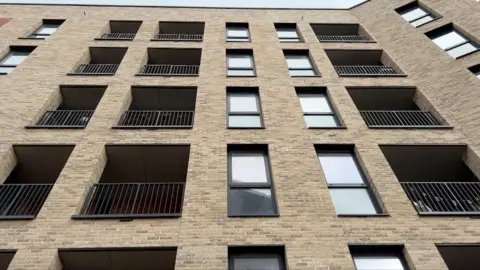A group of landowners is initiating a judicial review in the High Court in response to reforms concerning the freehold and leasehold property ownership system being implemented by the UK government. This group predominantly consists of wealthy landowners and two charities, which collectively hold the freehold leases to numerous properties, mainly flats. They assert that legislation introduced by the previous Conservative government infringes upon their human rights.
The landowners claim that measures encapsulated in the Leasehold and Freehold Reform Act (LAFRA), which was fast-tracked through Parliament ahead of the 2024 general elections, are in violation of their rights to enjoy private property as specified in the European Convention of Human Rights (ECHR). From the landowners’ viewpoint, the reforms threaten their financial stability by altering the established norms for lease extensions and freehold purchases. They contend that these changes will significantly affect their investment capacity and disrupt community funding.
On the other side of this contentious issue, leaseholders express concern that the High Court hearing could delay necessary reforms intended to protect their interests. They feel their voices are absent from the legal proceedings. Approximately 4.5 million individuals in England and Wales hold leasehold properties, and the leasehold system is criticized as increasingly outdated. These regulations trace back to medieval times, receiving significant scrutiny as both previous Conservative and current Labour governments have labeled the system “feudal.” The Labour Party has promised substantial reform, including the abolition of leasehold altogether and the introduction of a commonhold model, yet many leaseholders worry that progress is stymied by legal disputes.
One leaseholder, Phil Jones, describes his plight with particular frustration. He purchased his two-bedroom leasehold flat in Westcliff-on-Sea 25 years ago, only to find his ground rent doubling every decade, now culminating at £500. Jones’ freeholder demanded £60,000 to eliminate the ground rent, a sum he is unable to afford, which has rendered his flat unsellable. He argues that this legal challenge not only impacts individual owners like him but also contravenes a decision that has already been finalized by Parliament, questioning the motive behind the landowners’ legal action.
The impending court hearing is expected to last from a Tuesday into that week’s Friday. Proponents of the LAFRA legislation initially welcomed the law, which aimed to simplify the process of extending leases and purchasing freeholds, as well as reducing costs. Yet, the freeholders are arguing against specific aspects of this law, particularly in relation to the calculations used to determine lease extension prices, fearing substantial financial losses. They assert that these changes may redirect wealth away from individual landowners to larger property conglomerates.
Additionally, charities like the John Lyon’s Charity, which utilize proceeds from their property for community support, express apprehension that legislation reform will lead to a significant loss in revenue, potentially affecting their ability to fund various programs aimed at disadvantaged children. The charity has called for exemption from these new reforms, articulating that the repercussions of the changes would be detrimental.
The context of this legal battle highlights the complexities surrounding the UK’s property ownership system, where historical practices face modern challenges. The legislation and the opposition to it illustrate a broader debate about property rights, financial security, and social responsibility.
Moving into the future, leaseholder advocacy groups are urging the government not to yield to pressures from wealthy landowners while they stress the need for ongoing reforms to dismantle the feudal leasehold system, as promised in the government manifesto. The stakes in the High Court ruling are high not just for the parties directly involved, but also for the millions of leaseholders, as it holds the potential to significantly alter the landscape of property ownership in the United Kingdom.











